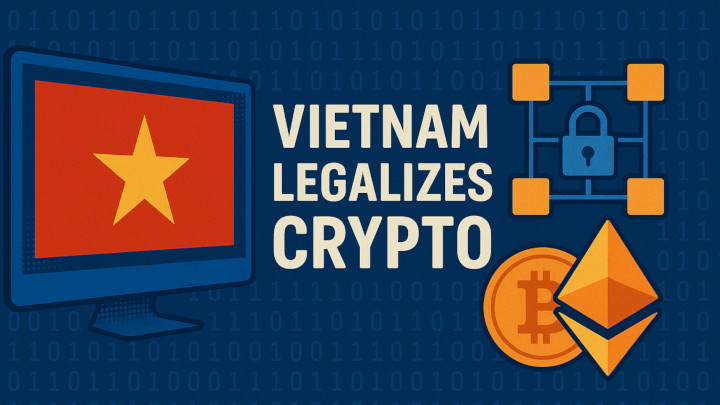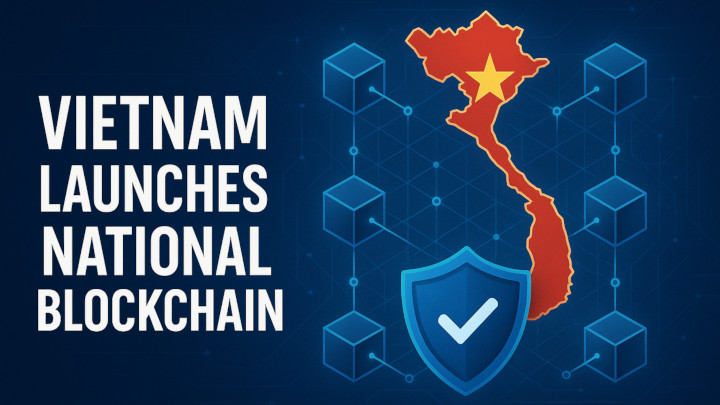June 23, 2025
Externalisation informatique au Vietnam 2025 : rapports et tendances du marché
Le secteur technologique mondial connaît une grave pénurie de développeurs qualifiés, selon les estimations un déficit pouvant atteindre 85 millions de professionnels d'ici 2030.
Cette pénurie de talents a poussé les entreprises du monde entier à se tourner vers des solutions de développement offshore.
Dans ce paysage, Vietnam s'est rapidement imposée comme une destination privilégiée pour l'externalisation des logiciels développement. Autrefois considéré comme un acteur secondaire en Asie, le Vietnam est désormais solidement positionné parmi les les 7 meilleures destinations mondiales d'externalisation de logiciels et occupe la troisième place en Asie du Sud-Est, dépassant plusieurs concurrents régionaux en termes de croissance, évolutivité et qualité de service.
L'attrait du Vietnam ne réside pas uniquement dans sa rentabilité. Sa solide base pédagogique, l'amélioration de la culture numérique et le soutien du gouvernement ont permis de développer une main-d'œuvre informatique dynamique, innovante et hautement qualifiée.
Dans cet article, Dirox propose une analyse approfondie des Le marché de l'externalisation informatique au Vietnam en 2025, ainsi que sept tendances émergentes qui sont en train de remodeler externalisation du développement au Vietnam, des stratégies privilégiant le cloud à la personnalisation spécifique au secteur.
I. Croissance du marché et projections
Le secteur de l'externalisation informatique au Vietnam se développe à un rythme que peu d'autres pays peuvent égaler. En 2024, le chiffre d'affaires de l'externalisation informatique au Vietnam s'élevait à 0,7 milliard de dollars américains, et il devrait presque doubler pour atteindre 1,28 milliard de dollars américains d'ici 2028, en maintenant une solide taux de croissance annuel composé (CAGR) de 17 %.
Cette croissance soutenue est alimentée par une combinaison de facteurs, notamment hausse de la demande pour la transformation numérique dans les industries mondiales, la complexité croissante des besoins logiciels, et le Vietnam extension de l'expertise dans des méthodologies de développement agiles et évolutives.
La trajectoire impressionnante du Vietnam le place dans une position stratégique pour absorber la demande excédentaire créée par la pénurie mondiale de talents.
Les entreprises en Europe, Amérique du Nord, Japon, et Corée du Sud, confrontés à des difficultés pour recruter des développeurs locaux, se tournent de plus en plus vers externalisation du développement au Vietnam pour accélérer les délais de mise sur le marché et innover en matière de produits.
Cette tendance à la hausse devrait se poursuivre car les entreprises cherchent non seulement à réduire leurs coûts, mais également à exploiter Solutions informatiques au Vietnam qui fournissent des résultats cohérents et de haute qualité à grande échelle.
II. Principaux avantages concurrentiels

1. Des talents technologiques à grande échelle
Au cœur de cet écosystème se trouve une base de talents florissante.
Avec plus de 560 000 développeurs de logiciels et environ 55 000 à 60 000 diplômés en informatique entrent sur le marché du travail chaque année, le pays dispose d'un vaste vivier de talents capable de tout gérer, de la modernisation de l'héritage à la pointe de la technologie Développement de l'IA externalisation.
Ces professionnels connaissent bien les méthodologies modernes telles que Scrum et Agile, et nombre d'entre eux sont titulaires de certifications internationales. En outre, le Vietnam se classe parmi les Top 10 mondial pour les capacités des développeurs, reflétant la profondeur et l'étendue de son expertise technique.
Entre-temps, Augmentation du personnel informatique et équipes de développement dédiées sont devenues des offres standard, offrant aux clients internationaux la flexibilité d'augmenter ou de réduire leur taille en fonction des besoins des projets.
2. Avantage financier significatif
Alors que la valeur du Vietnam en tant que partenaire d'externalisation va bien au-delà de l'accessibilité, le coût reste un facteur important.
Les taux de développement horaires au Vietnam vont de 20$ à 40$, nettement inférieur à Singapourles salaires mensuels de 4 500$ à 7 000$. Même par rapport à leurs homologues indiens, les développeurs vietnamiens gagnent 15 % à 30 % de moins, ce qui permet de réaliser d'importantes économies.
3. Soutien au gouvernement et à l'infrastructure
Les entreprises sont également de plus en plus attirées par la qualité globale du service et la maturité croissante de l'écosystème informatique du Vietnam. Le pays a investi massivement dans le développement d'une génération de développeurs hautement compétents grâce à des programmes éducatifs spécialisés, à des partenariats internationaux et à des initiatives gouvernementales telles que le Programme national de transformation numérique.

Le soutien du gouvernement amplifie encore ces avantages. Avec FDI affluant secteurs du numérique et de la haute technologie, le Vietnam s'emploie à créer un environnement favorable à la fois entreprises technologiques locales et internationales.
Développement des infrastructures, améliorations réglementaires, et programmes de littératie numérique contribuent à renforcer la réputation du Vietnam en tant que pôle technologique de l'Asie du Sud-Est.
Afin de donner un coup de pouce majeur aux nouveaux entrants, le gouvernement a également introduit un nouvelle exonération de 3 ans de l'impôt sur les sociétés (CIT) en mai 2025 pour PME nouvellement créées, y compris entreprises informatiques à capitaux étrangers, réduisant considérablement les obstacles à l'entrée et diminuant les coûts opérationnels initiaux, rendant l'externalisation des processus métier beaucoup plus attrayante pour les entreprises étrangères désireuses d'avoir une entité juridique au Vietnam et une présence à long terme en Asie.
Ce incitatif fiscal favorable aux entreprises s'aligne sur les objectifs nationaux plus généraux visant à attirer des entreprises axées sur l'innovation et à positionner le Vietnam comme une destination de choix pour les entreprises à forte valeur ajoutée, développement de logiciels personnalisés et solutions informatiques offshore.
III. Les 7 tendances qui remodèlent l'externalisation du développement au Vietnam
1. Intégration de l'IA et de l'IA générative
L'intelligence artificielle, et plus particulièrement IA générative, redéfinit le paysage mondial des logiciels, et le Vietnam suit le rythme.
Des données récentes montrent que 56,6 % des développeurs au Vietnam l'utilisent déjà ChatGPT ou outils d'IA similaires pour prendre en charge les tâches de codage, réduire les erreurs et accélérer les délais de développement. Cette tendance s'inscrit dans Vietnamiens Stratégie nationale en matière d'IA, qui vise à placer le pays parmi les les 50 meilleurs pays du monde prêts à utiliser l'IA (Le Vietnam est actuellement classé #58).
À partir de chatbots et moteurs de recommandation pour automatisation intelligente dans fintech et logistique, le Vietnam apporte déjà une valeur tangible grâce à Développement de l'IA externalisation.
Pour les entreprises qui souhaitent s'intégrer apprentissage automatique ou grands modèles de langage dans leurs opérations, le Vietnam propose une combinaison de abordabilité et sophistication technique que peu d'autres marchés peuvent égaler.
2. Environnement de développement axé sur le cloud
Le passer au cloud est une autre tendance déterminante des services de développement de logiciels au Vietnam.
Les applications cloud natives devenant la norme, le Vietnam s'est positionné comme destination d'externalisation axée sur le cloud. Le ministère de l'Information et des Communications (MIC) vise à étendre la part de marché mondiale des services cloud couvert par le régime national fournisseurs de cloud à 70 % en 2030 dans le cadre des objectifs nationaux de numérisation.

En tant que l'infrastructure des centres de données continue de s'étendre, le Vietnam a connu un essor correspondant en services de développement cloud.
Les développeurs locaux ne sont pas seulement compétents en déploiement et gestion d'applications cloud, mais ils sont également spécialisés dans Services DevOps, architecture de microservices, et stratégies de migration vers le cloud, des compétences essentielles pour répondre aux besoins des entreprises modernes.
3. Personnalisation spécifique à l'industrie
Le secteur de l'externalisation de logiciels au Vietnam est de plus en plus spécifique au secteur et propose des solutions informatiques personnalisées pour répondre besoins sectoriels. Dans fintech, par exemple, le Vietnam connaît une transformation rapide, le marché devant atteindre 62,7 milliards de dollars américains d'ici 2033.
Un impressionnant 95 % des banques locales adoptent activement de nouvelles technologies telles que paiements mobiles, la vérification de l'identité numérique et les évaluations des risques pilotées par l'IA. Cela fait du Vietnam une destination de choix pour externalisation du développement des technologies financières.
Dans fabrication, le pays intègre Technologies IoT vers des solutions d'usine intelligentes, aidant les fabricants mondiaux à moderniser leurs chaînes de production.
Pendant ce temps, le commerce électronique le secteur évolue vers OMO (fusion en ligne et hors ligne) expériences de vente au détail, optimisées par AIR, mégadonnéeset analyses dans le cloud.
Ce type d'expertise spécifique à un domaine fait du Vietnam développement de logiciels personnalisés des services particulièrement intéressants pour les entreprises qui ont besoin de solutions spécialisées à fort impact.
4. Combler la pénurie de talents au niveau mondial
L'un des arguments les plus convaincants en faveur de l'externalisation informatique au Vietnam réside dans sa capacité à remédier à la pénurie de développeurs dans d'autres économies avancées.
Le Japon, par exemple, devrait faire face à une Il manque 600 000 ingénieurs informatiques d'ici 2030, tandis que Corée du Sud attend plus de 10 000 personnes en pénurie de talents en IA cette année.
Le Vietnam est devenu l'un des principaux partenaires d'externalisation pour ces marchés, offrant à la fois compatibilité culturelle et capacité technique.
Les entreprises vietnamiennes ont également amélioré leur maîtrise de la langue et chevauchement des fuseaux horaires, permettant aux entreprises du Japon, de Corée et d'ailleurs de gérer plus facilement équipes de développement dédiées avec un minimum de friction.
5. Positionnement stratégique face à l'Inde
Le Vietnam se taille également une place en tant que une alternative viable à l'Inde pour l'externalisation du développement de logiciels.
Alors que l'Inde reste une force dominante, le Vietnam offre des avantages uniques en termes de agilité des projets, réactivité de l'équipe, et proximité régionale.
Pour startups et entreprises de taille moyenne à la recherche d'un développement de haute qualité avec des délais d'exécution rapides, La main-d'œuvre agile du Vietnam et des processus rationalisés le rendre particulièrement adapté.
6. Structures de coûts évolutives et croissance durable
Bien que le Vietnam reste l'une des destinations d'externalisation les plus abordables, l'accent est désormais mis sur la réduction des coûts création de valeur à long terme.
Les salaires d'entrée de gamme commencent à environ 480$ par mois, tandis que des rôles plus expérimentés peuvent prendre le dessus 2 000$ par mois.
Cependant, grâce à IA et automatisation, de nombreuses entreprises atteignent 20 à 30 % de réduction des coûts dans les cycles de développement, en préservant leur avantage concurrentiel.
Avec 67,8 % de la population dans le groupe d'âge actif (15 à 64 ans) et des niveaux croissants de culture numérique, la main-d'œuvre vietnamienne offre à la fois quantité et qualité.
L'accent est désormais mis sur croissance durable, fort fidélisation de l'équipe, et en continu amélioration des compétences pour répondre à l'évolution des normes mondiales.
7. Surmonter les obstacles linguistiques et réglementaires
Malgré ses atouts, le secteur de l'externalisation informatique du Vietnam est toujours confronté à quelques défis. La maîtrise de l'anglais reste moyenne, se classant 8e en Asie et 63e au niveau mondial dans l'indice mondial de compétence en anglais 2024.
Cependant, la demande croissante de talents anglophones, combinée à primes salariales pour les développeurs maîtrisant l'anglais—améliore rapidement le paysage.
Le Vietnam aborde également des questions historiques liées à complexité administrative et incertitude réglementaire grâce à une vaste série de réformes en 2025.
Dans le cadre de son Gouvernance rationalisée et modernisation de la réglementation initiative, le gouvernement met en œuvre un Une administration axée sur le numérique stratégie. D'ici la fin de 2025, toutes les procédures administratives liées aux entreprises devront être entièrement en ligne, en éliminant les formalités administratives et en augmentant à la fois la rapidité et la transparence pour les entreprises étrangères et nationales.
Ce virage numérique est complété par une Restructuration administrative au niveau national, visant à simplifier les processus bureaucratiques, réduire les formalités administratives et créer un environnement opérationnel plus stable et prévisible pour les investisseurs.
En parallèle, des cadres juridiques renforcés sont en cours de déploiement pour s'aligner sur les normes internationales.
L'adoption en cours par le Vietnam de la Normes internationales d'information financière (IFRS) d'ici 2025 devrait augmenter transparence de l'information financière, tandis que Décret 13, le nouveau protection des donnéesen droit, rapproche la gouvernance des données du pays des critères de référence mondiaux du type RGPD.
Au niveau organisationnel, les entreprises technologiques vietnamiennes donnent la priorité bien-être des employés, en proposant des modalités de travail flexibles et en investissant dans développement de carrière pour réduire l'attrition et attirer les meilleurs talents.
Chez Dirox, nous sommes fiers d'avoir remporté le titre « Prix des meilleures entreprises informatiques 2024 » par ITViec, en particulier pour l'importance que nous accordons au bien-être des employés, à la formation et à un environnement de travail positif !

Conclusion

La dynamique de l'externalisation informatique au Vietnam en 2025 est indéniable. Sa combinaison de développement de haute qualité, des prix compétitifs, et expertise approfondie en matière d'IA, de cloud et de solutions spécifiques au secteur le place dans une position unique pour répondre aux besoins des entreprises à la recherche de partenariats informatiques fiables et évolutifs.
Les efforts proactifs déployés par le Vietnam pour surmonter ses défis, qu'il s'agisse de la maîtrise de la langue, de l'alignement de la réglementation ou de la rétention des talents, soulignent son engagement à devenir non seulement un fournisseur à faible coût mais un partenaire stratégique à long terme dans le processus de transformation numérique.





























.svg)













